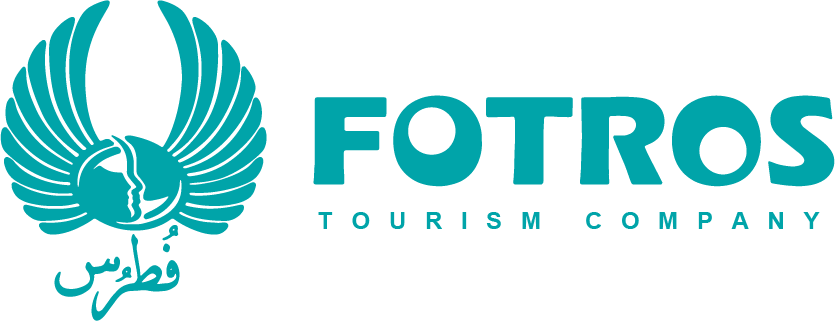
Medical Surgeries
Nephrectomy


Nephrectomy is a surgical procedure in which one or both of the kidneys are removed from a person's body. This procedure is typically performed for several reasons, including:
Kidney disease: Nephrectomy may be necessary when one or both of the kidneys are severely damaged or diseased and are no longer functioning properly. This can include conditions such as chronic kidney disease, polycystic kidney disease, or kidney cancer.
Kidney cancer: When a person has kidney cancer (renal cell carcinoma), a nephrectomy may be performed to remove the cancerous kidney. Depending on the extent of the cancer and the patient's overall health, either a partial nephrectomy (removing only the tumor and preserving the healthy part of the kidney) or a radical nephrectomy (removing the entire kidney) may be performed.
Living kidney donation: In some cases, a healthy individual may choose to donate one of their kidneys to someone in need of a kidney transplant. This is known as living kidney donation, and a nephrectomy is performed on the donor to remove one kidney. Living kidney donation is a life-saving procedure for the recipient, and most people can lead healthy lives with just one functioning kidney.
Nephrectomies can be performed using various surgical techniques, including open surgery, laparoscopic surgery, or robotic-assisted surgery. The choice of technique depends on the specific circumstances of the patient and the reason for the nephrectomy.
Before Nephrectomy:
Preoperative Evaluation: Before the surgery, you will undergo a thorough medical evaluation, including blood tests, imaging studies, and discussions with your surgical team to assess your overall health and determine the necessity of the procedure.
Medication Review: Your healthcare team will review your current medications and may ask you to stop or adjust certain medications in the days leading up to the surgery, particularly blood-thinning medications.
Fasting: You will typically be asked to fast for a certain period before the surgery, usually from midnight the night before.
Shower and Cleanse: You may be asked to take a shower with a special antibacterial soap to reduce the risk of infection.
Preparation Instructions: Follow your surgeon's instructions regarding any specific preoperative preparations, such as bowel cleansing if necessary.
Arrange Support: Ensure that you have someone to drive you to the hospital and back, as well as to provide support during your recovery.
is a surgical procedure in which one or both of the kidneys are removed from a person's body. This procedure is typically performed for several reasons, including:


Kidney disease: Nephrectomy may be necessary when one or both of the kidneys are severely damaged or diseased and are no longer functioning properly. This can include conditions such as chronic kidney disease, polycystic kidney disease, or kidney cancer.
Kidney cancer: When a person has kidney cancer (renal cell carcinoma), a nephrectomy may be performed to remove the cancerous kidney. Depending on the extent of the cancer and the patient's overall health, either a partial nephrectomy (removing only the tumor and preserving the healthy part of the kidney) or a radical nephrectomy (removing the entire kidney) may be performed.
Living kidney donation: In some cases, a healthy individual may choose to donate one of their kidneys to someone in need of a kidney transplant. This is known as living kidney donation, and a nephrectomy is performed on the donor to remove one kidney. Living kidney donation is a life-saving procedure for the recipient, and most people can lead healthy lives with just one functioning kidney.
Nephrectomies can be performed using various surgical techniques, including open surgery, laparoscopic surgery, or robotic-assisted surgery. The choice of technique depends on the specific circumstances of the patient and the reason for the nephrectomy.


After Nephrectomy:
The specific care after nephrectomy may vary depending on the type of surgery (open or laparoscopic) and your overall health, but some general guidelines include:
Pain Management: You will likely experience pain or discomfort after surgery. Your healthcare team will provide pain medications to manage this.
Hospital Stay: The length of your hospital stay will depend on the type of nephrectomy and your recovery. It could range from a few days to a week.
Activity and Mobility: Initially, you'll need to rest and limit physical activity. Gradually, you'll be encouraged to increase your mobility.
Diet: You'll start with clear liquids and progress to a regular diet as tolerated. Your healthcare team will guide dietary restrictions or recommendations.
Wound Care: Keep the surgical incision clean and dry. Your healthcare team will provide instructions on when and how to change dressings.
Drain Tubes: If you have drain tubes, your healthcare team will show you how to care for them and monitor the drainage.
Follow-up Appointments: Make sure to attend all follow-up appointments with your surgeon and medical team to monitor your progress.
Medication: You may be prescribed medications to prevent infection and manage pain. Take them as directed.
Activity Restrictions: Avoid strenuous activities, heavy lifting, or bending for several weeks as advised by your surgeon.
Complications: Be vigilant for signs of infection, excessive bleeding, or other complications, and contact your healthcare team if you experience any concerning symptoms.
Why Iran :
Iran, like many countries, has the medical infrastructure and expertise to perform nephrectomy procedures, which is the surgical removal of one or both kidneys. Several factors make Iran suitable for performing nephrectomies:
Medical Expertise: Iran has a well-established healthcare system with highly trained and skilled medical professionals, including surgeons, anesthesiologists, and nurses who are capable of performing complex surgical procedures like nephrectomy.
Advanced Medical Facilities: Major cities in Iran have modern hospitals and medical facilities equipped with state-of-the-art technology and equipment necessary for performing nephrectomy procedures safely and effectively


Experience: Iranian medical professionals have extensive experience in performing nephrectomies due to the high prevalence of kidney diseases and the need for kidney transplantations in the country.
Research and Innovation: Iran has a strong focus on medical research and innovation, and its healthcare system benefits from ongoing advancements in surgical techniques, technology, and treatment options.
Cost-Effective Healthcare: Medical procedures in Iran are often more affordable than in many Western countries, making it an attractive destination for medical tourism, including nephrectomies.
Medical Tourism: Iran has been actively promoting medical tourism, offering a range of services to international patients, including medical consultations, treatment, and assistance with travel logistics.
Government Support: The Iranian government has shown support for the development of its healthcare sector, making investments in medical infrastructure and research.


Our services include:
![]() our online services include: quotes and consultation
our online services include: quotes and consultation
![]() Planning the highest word-level medical trips and quality hospitals and medical centers according to the patient's request and budget.
Planning the highest word-level medical trips and quality hospitals and medical centers according to the patient's request and budget.
![]() Appointing treatments by the most skilled and experienced doctors.
Appointing treatments by the most skilled and experienced doctors.
![]() Airport pick-up/drop off, check-ups, accompanying translator, book hotel (for patients and their families)
Airport pick-up/drop off, check-ups, accompanying translator, book hotel (for patients and their families)
![]() Pre-hospitalization / post-hospitalization care services
Pre-hospitalization / post-hospitalization care services
All-Inclusive Medical Travel Packages
based on your budget, our team will assist you in choosing the best hotels, doctors, and medical centers. Our packages include:
 Airport Pickup Services
Airport Pickup Services Airport Dropoff services
Airport Dropoff services Hotel
Hotel Ticket
Ticket visa
visa translator
translator Transfer
Transfer SIM Card
SIM Card Sightseeing
Sightseeing


 why Iran
why Iran
Patients may choose to have abdominoplasty (commonly known as a tummy tuck) in Iran for a variety of reasons
Cost, Quality of Care, Privacy and Discretion, Combined Tourism, no Waiting Times
![]()
Fotros is an Iranian health tourism company with a professional team consisting of a support team and word-level doctors in medical and cosmetic surgeries like Neurosurgery, Rhinoplasty, Breast cosmetic surgeries, Liposuction, tummy tuck, etc.










 why Iran
why Iran